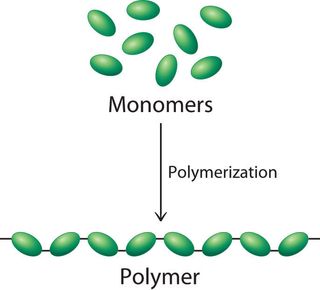Lasting Polymers: Eco-Friendly Solutions for the Future
Lasting Polymers: Eco-Friendly Solutions for the Future
Blog Article
Discovering the Varied Applications and Advantages of Polymers in Different Industries
Polymers, with their diverse array of residential properties and capabilities, have become essential in different markets, each gaining one-of-a-kind advantages from their application. From enhancing safety and security and performance in the vehicle market to transforming medical gadgets in the health care market, polymers play a crucial function.
Automotive Market Applications
Polymers play an essential role in improving the efficiency and longevity of numerous elements within the automobile sector. These flexible materials are extensively used in the manufacturing of different parts, varying from indoor parts to under-the-hood applications. One prominent use polymers in the vehicle market is in the manufacturing of light-weight elements. By changing conventional metal get rid of polymer-based alternatives, lorries can attain improved fuel effectiveness without jeopardizing on strength or security.

Medical Care Market Benefits
In various medical care applications, the advantages of utilizing polymers are commonly identified for their varied range of valuable properties. Polymers play a critical duty in the health care industry due to their adaptability, biocompatibility, and cost-effectiveness. One of the primary advantages of polymers in health care is their capacity to be tailored to details needs, such as adaptability, toughness, and biodegradability, making them perfect for a variety of medical applications.
Polymer-based products are extensively utilized in clinical gadgets, such as catheters, implants, prosthetics, and medication delivery systems, due to their biocompatibility and ability to simulate all-natural tissues. These products can lower the threat of sensitive responses or beings rejected, improving person security and outcomes. Additionally, polymers are light-weight, making them ideal for wearable medical gadgets and making sure patient comfort.
Moreover, polymers enable the advancement of ingenious treatment methods, such as hydrogels for cells design and nanocomposites for targeted drug distribution. Their simplicity of processing and sanitation makes them important for maintaining high criteria of health in healthcare setups. Generally, the diverse benefits of polymers contribute significantly to improvements in clinical modern technology and client treatment.
Environmental Advantages of Polymers

Furthermore, polymers can add to power savings because of their lightweight nature. In markets such as transportation, lightweight polymer products can help in reducing fuel intake and greenhouse gas discharges. In addition, polymers can enable the development of energy-efficient items such as insulation products that improve power preservation in structures.
Furthermore, polymers play an important role in decreasing water air pollution. The usage of polymer-based purification systems can effectively get rid of toxins and pollutants from wastewater, safeguarding water resources and environments. In general, the environmental benefits of polymers make them useful assets in advertising sustainability and environment-friendly practices across numerous sectors.
Polymers in Electronic Devices and Modern Technology
Thinking about the boosting demand for go to my blog ingenious and sustainable options in modern-day markets, the assimilation of sophisticated polymer technologies in the realm of electronic devices and innovation has actually become a critical approach for driving effectiveness and performance. Polymers have reinvented the electronic devices market by enabling the production of lighter, extra versatile, and long lasting digital tools. From smart devices to clinical tools, polymers play an important role in improving product layout and performance.
One considerable advantage of polymers in electronics is their protecting properties, which help shield delicate electronic components from environmental variables and electric disturbance. Furthermore, polymers are necessary in the development of flexible display screens, wearable modern technology, and printed electronic devices, supplying countless possibilities for creating clever and interconnected devices.
Moreover, making use of polymers in digital product packaging has actually resulted in improvements in miniaturization and thermal administration, enhancing the overall performance and reliability of electronic systems. As modern technology proceeds to progress, the convenience and versatility of polymers will undoubtedly drive further web link advancement in the electronics sector, shaping the future of innovation.
Function of Polymers in Building and Infrastructure
Polymers use many advantages in the construction market due to their flexibility, durability, and cost-effectiveness. One key role of polymers in building is their usage in layers and sealants, offering security versus environmental variables such as wetness, UV radiation, and rust.
Furthermore, polymers play a crucial duty in sustainable construction practices by making it possible for the development of energy-efficient structures. Shielding materials made from polymers assist manage indoor temperature levels, reducing the need for home heating and cooling systems and inevitably decreasing power intake. In addition, making use of polymer-based composites in infrastructure projects such as bridges and roads boosts their durability and lowers maintenance costs. Overall, the unification of polymers in construction and infrastructure showcases their significant impact on modern-day engineering practices.
Verdict
Finally, polymers play a basics critical role in numerous industries such as auto, healthcare, ecological, electronics, and building. Their functional properties make them important in producing cutting-edge services and items. From boosting gas effectiveness in cars to improving clinical devices, polymers offer many benefits. Furthermore, their impact on decreasing waste and advertising sustainability highlights their relevance in contemporary applications. The widespread use of polymers demonstrates their considerable payment to progressing innovation and boosting top quality of life.
Report this page